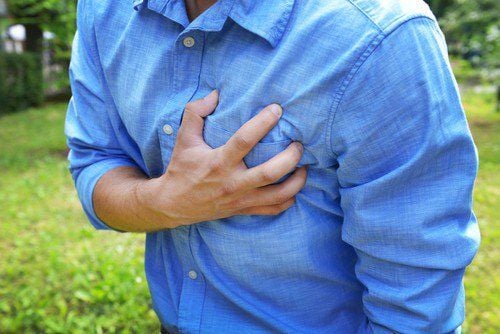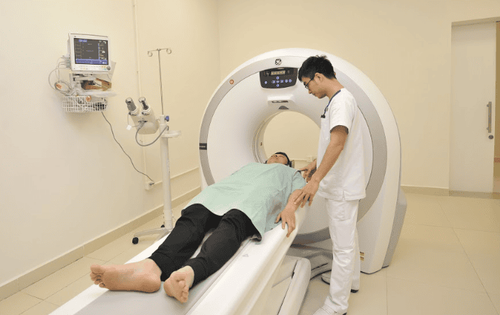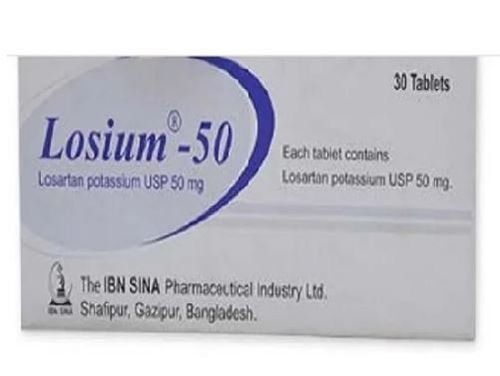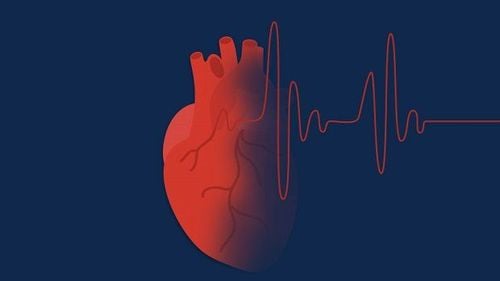This is an automatically translated article.
The article is professionally consulted by Master, Doctor Cao Thanh Tam - Cardiologist - Cardiovascular Center - Vinmec Central Park International General Hospital.Bradycardia is called bradycardia when the heart rate slows below 60 beats per minute (bpm) and it can be caused by an underlying medical condition such as cardiovascular disease or hypothyroidism.
1. What is bradycardia?
In adults, the sinus node pulses between 60 and 100 times a minute, so a normal heart rate fluctuates in that range. A heart rate less than 60 times is called bradycardiaA bradycardia can be a sign of an abnormality in the heart's electrical impulse conduction system, that is, the heart's natural electrical impulse site - the sinoatrial node - SA), abnormal functioning, or the pathway that conducts electrical impulses in the heart for some reason is damaged, not intact.
In severe cases, the heart will beat very slowly, the circulation is very low, the body cannot meet enough blood supply, so many symptoms will manifest and life may be threatened. .
Trắc nghiệm: Sự thật về trái tim của bạn
Tim là 1 phần của hệ tuần hoàn, được cấu thành bởi tâm thất, tâm nhĩ, các van tim, động mạch và tĩnh mạch. Trái tim có chức năng lưu thông máu giàu oxy đưa tới khắp cơ thể. Được xem là "chìa khóa" của sự tồn tại nên việc giữ gìn một trái tim khỏe mạnh là rất quan trọng. Cùng tìm hiểu xem bạn đã thực sự hiểu về trái tim hay chưa.
Bài dịch từ: webmd.com
2. What are the symptoms of bradycardia?
In fact, bradycardia may not have any symptoms at all. However, when the heart beats slowly can make the body feel:Dizziness or lightheadedness, lightheadedness, worse can be sudden exhaustion or fainting. Shortness of breath, especially during exercise or exertion. Feel very tired. Chest pain, or a feeling of palpitations. Or confused, difficult to stay focused.

3. What are the risk factors for bradycardia?
Bradycardia can be caused by many factors and causes. Bradycardia can be normal (especially in very healthy young people), but it can also be caused by abnormal causes:Abnormal conduction of electrical impulses in the heart, arrhythmias heart . Physical damage to the heart due to myocardial infarction. Hypertension . Congenital heart diseases. Myocarditis (myocarditis). Complications of heart surgery. Thyroid deficiency. Using drugs in the treatment of certain diseases, such as beta-blockers, digoxin,...
4. How is bradycardia diagnosed?
Bradycardia can be detected quite simply:Physical examination, pulse counting results in a very slow heartbeat. The first laboratory tests to do are standard blood tests and electrocardiograms. Sometimes bradycardia does not occur frequently (sudden onset, then resolves without treatment, then reappears suddenly), so a portable ECG (ambulatory) should be performed. ECG). This is a method of recording an electrocardiogram continuously for a certain period of time, usually 24 - 48 hours. The ECG data will be recorded for the specialist to review after the procedure is over. During the ambulatory electrocardiogram, the patient continued to live and work completely normally.
5. How is bradycardia treated?
Treatment for bradycardia depends on the underlying medical condition causing it and the symptoms present. If bradycardia does not cause any symptoms, no treatment is necessary, unless the underlying underlying cause of the bradycardia needs to be treated.If damage to the electrical impulse conduction system is causing the heart to beat too slowly, the patient may need an artificial pacemaker. An artificial pacemaker is a device that is implanted in the body to correct the heart rate. Patients with artificial pacemakers can still lead normal, active lives (but it depends on the underlying medical condition). If bradycardia is caused by some medical condition (such as hypothyroidism, or electrolyte imbalance, etc.), usually after addressing the cause, the bradycardia will also be resolved. If medication is causing your heart to beat too slowly, your doctor may recommend reducing the dose of your current medication or switching to a different medication. Always seek emergency help when you or someone around you faints or has signs of a heart attack. For example, severe chest pain or severe shortness of breath. Contact your doctor or call 911 right away if your heart rate is slower than normal, your body feels like it's about to collapse, or your breathing is getting worse.
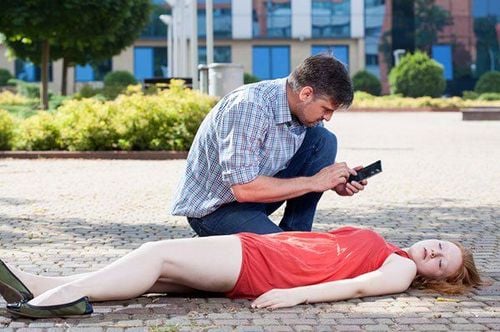
6. Complications of bradycardia
For most people, bradycardia does not cause any complications. The complications that occur will depend on the underlying cause of the bradycardia.If the bradycardia is severe without timely intervention, it will lead to many serious consequences, including fainting, convulsions, and even death.
7. How to prevent bradycardia?
Slow heart rate can be caused by cardiovascular diseases, so practicing a healthy lifestyle is very helpful. A healthy lifestyle means eating a healthy, balanced diet, not smoking, losing weight (if you're overweight), maintaining a healthy weight, and exercising regularly. .Vinmec International General Hospital is currently implementing the Cardiac Arrhythmia Examination Package, which uses the Holter electrocardiogram method to detect cardiac arrhythmias. The examination package is performed by a team of well-trained doctors, experienced in diagnosing and treating cardiovascular diseases, always devoted and wholehearted to the patient, with the support of modern machinery and equipment. Modern technology will help detect arrhythmias early and most accurately, so that appropriate treatment can be given.
Master - Doctor Cao Thanh Tam has many years of experience in diagnosing and treating cardiovascular diseases; Performing transthoracic echocardiography in the field of internal medicine and interventional Cardiology; Perform other non-invasive functional investigations in the diagnosis and treatment of cardiovascular diseases. Currently working as a cardiologist at Vinmec Central Park International General Hospital since November 2015.
Please dial HOTLINE for more information or register for an appointment HERE. Download MyVinmec app to make appointments faster and to manage your bookings easily.






